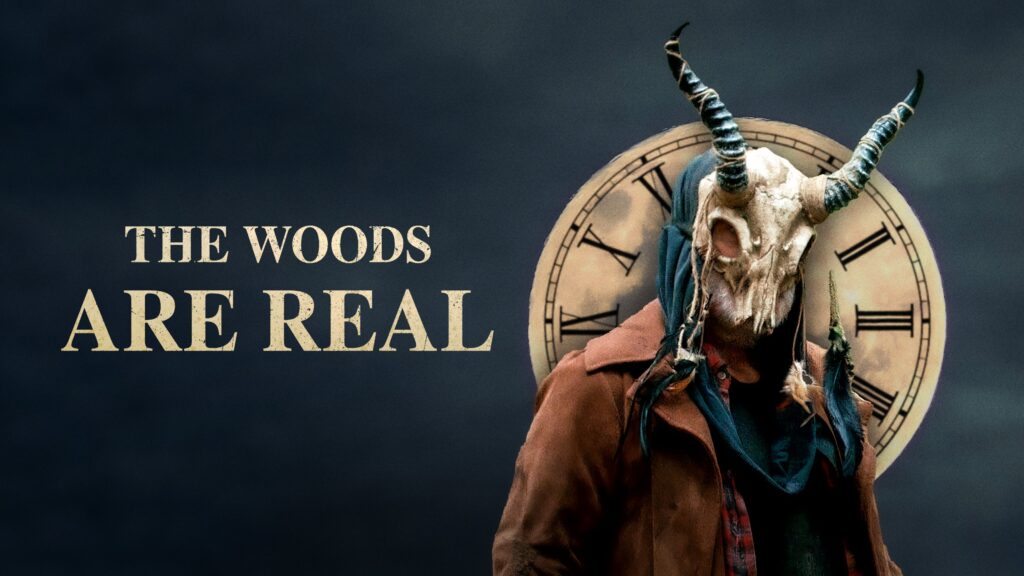The Woods Are Real 2024 Movie Review

Folk horror, a genre primarily associated with English filmmakers, boasts a rich tradition within Britain’s cinematic landscape. Thus, it’s intriguing to witness director Alix Lambert and screenwriters Matt Dellapina and Sean Christopher Lewis, hailing from across the Atlantic, embrace this genre in “The Woods are Real.” Yet, one may wonder if their narrative can successfully transplant from the ancient English countryside.
The story unfolds at a dinner party resembling a tense Apple commercial, featuring a diverse quartet: the affectionate gay couple Caleb (Nick Westrate) and Stan (Jeffrey Omura), and the mixed-race duo Joba (Matt Dellapina) and Quincy (Chinasa Ogbuagu). However, Joba’s casual stabbing by Quincy undermines any sympathy for these characters, leaving viewers perplexed about the script’s intentions regarding diversity, whether it reveres it or satirizes it. Quincy’s family operates a struggling mining business, while Joba’s family crafts wristwatches, an allegorical detail left ambiguous.
Following a disagreement, Caleb offers Joba and Quincy a retreat he found transformative. The couple heads to the woods, only to find themselves stranded in a house filled with peculiar anachronisms, like an ancient gramophone. As tensions rise, the gramophone ominously predicts their demise, and soon after, both the house and their car vanish, leaving them isolated in the wilderness with only a jar of maraschino cherries.
“The Woods are Real” shines brightest with the arrival of Campbell Scott as the deranged Woodsman, a quasi-deity of the forest. Scott’s unsettling performance adds depth to the narrative, particularly in scenes where he manipulates Joba and Quincy, showcasing directorial prowess in staging eerie confrontations amidst the trees.
Lambert skillfully explores the breadth of folk horror, eschewing typical pagan motifs for a narrative that echoes the ancient biblical tale of Job, confined within the confines of forest-bound terror. This thematic resonance aligns with other genre staples like Ben Wheatley’s surreal “A Field in England” and the cult classic “The Wicker Man,” offering a fresh perspective on existential dread and philosophical inquiry.





